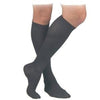Medication for Diabetic Neuropathy

Table Of Contents:
Diabetic neuropathy is a type of nerve damage that can occur as a complication of diabetes. It can affect different parts of the body, including the feet, legs, hands, arms, and internal organs. The symptoms of diabetic neuropathy can vary depending on the type of neuropathy and the affected area of the body. Common symptoms include pain, numbness, tingling, and muscle weakness.
Proper management and treatment of diabetic neuropathy is important to prevent the condition from worsening and to improve the quality of life of people with diabetes. One of the most common ways to manage diabetic neuropathy is through medication. In this article, we'll explore the different types of medication used to treat diabetic neuropathy and their potential benefits and side effects.
- Medications for Diabetic Neuropathy
There are several types of medications that can be used to treat diabetic neuropathy. The most commonly used medications include:
- Antidepressants
- Anticonvulsants
- Opioid painkillers
- Topical treatments
Each type of medication works differently to manage the symptoms of diabetic neuropathy. It's important to work with a healthcare provider to determine the best medication and dosage for each individual.
- Antidepressants for Diabetic Neuropathy
Antidepressants are commonly used to treat depression, but they can also be effective in treating neuropathic pain, which is a common symptom of diabetic neuropathy. There are two main types of antidepressants used to treat diabetic neuropathy:
Tricyclic antidepressants (TCAs): TCAs, such as amitriptyline and nortriptyline, work by blocking the reuptake of certain neurotransmitters in the brain, including serotonin and norepinephrine. This can help to reduce the perception of pain in people with diabetic neuropathy.
Serotonin-norepinephrine reuptake inhibitors (SNRIs): SNRIs, such as duloxetine and venlafaxine, work by increasing the levels of serotonin and norepinephrine in the brain. This can help to reduce pain and improve mood in people with diabetic neuropathy.
Potential side effects of antidepressants include drowsiness, dry mouth, constipation, and blurred vision. Antidepressants can also interact with other medications, so it's important to inform your healthcare provider of all medications you're taking.
- Anticonvulsants for Diabetic Neuropathy
Anticonvulsants are medications that are commonly used to treat seizures, but they can also be effective in treating neuropathic pain. There are several types of anticonvulsants used to treat diabetic neuropathy, including:
Potential side effects of anticonvulsants include dizziness, drowsiness, and weight gain. Anticonvulsants can also interact with other medications, so it's important to inform your healthcare provider of all medications you're taking.
- Opioid Painkillers for Diabetic Neuropathy
Opioid painkillers are medications that are commonly used to treat moderate to severe pain. They work by binding to opioid receptors in the brain and spinal cord, which can help to reduce the perception of pain. Opioid painkillers that may be used to treat diabetic neuropathy include Tramadol. Tramadol is a synthetic opioid that is used to treat moderate to severe pain.
Other Medications for Diabetic Neuropathy
In addition to the medications mentioned above, there are other medications that may be prescribed for diabetic neuropathy, depending on the severity and type of symptoms experienced. These include:
It is important to note that while these medications can be effective in managing diabetic neuropathy symptoms, they may also have side effects. Your doctor will work with you to determine the best course of treatment for your individual needs.
- Supplements for Diabetic Neuropathy
In addition to medications, some people with diabetic neuropathy may find relief from supplements. These include:
Before taking any supplements, it is important to talk to your doctor to ensure they are safe and appropriate for you.
- Lifestyle Changes for Diabetic Neuropathy
In addition to medications and supplements, there are lifestyle changes that can help manage diabetic neuropathy symptoms. These include:
Maintaining tight blood sugar control: Keeping your blood sugar levels within the target range recommended by your doctor can help prevent or slow the progression of nerve damage.Quitting smoking: Smoking can worsen nerve damage and increase the risk of complications from diabetic neuropathy.
Exercise: Regular exercise can improve circulation and reduce neuropathic pain.
Healthy diet: A healthy diet rich in fruits, vegetables, whole grains, and lean proteins can help manage blood sugar levels and improve overall health.
- Diabetic Socks and Supplements for Diabetic Neuropathy
Along with the above-mentioned treatments, some people with diabetic neuropathy may find relief from wearing diabetic socks and taking supplements specifically designed to support blood sugar management.
Diabetic socks are designed to provide extra cushioning and support for the feet, which can help reduce pain and prevent further injury. The DSC Blood Sugar Ultra Support Supplement is a supplement that contains a combination of natural ingredients that have been shown to support healthy blood sugar levels.
While these treatments may not be effective for everyone, they are worth considering as part of a comprehensive treatment plan for diabetic neuropathy. As always, it is important to talk to your doctor before starting any new treatments or supplements.
Conclusion
Diabetic neuropathy is a common complication of diabetes that can cause a range of symptoms, including pain, numbness, and tingling in the feet and hands. Fortunately, there are a variety of medications, supplements, and lifestyle changes that can help manage these symptoms.
If you are experiencing symptoms of diabetic neuropathy, it is important to talk to your doctor as soon as possible to determine the best course of treatment for your individual needs. With the right treatment plan, it is possible to manage diabetic neuropathy symptoms and improve your quality of life.
If you're struggling with diabetic neuropathy and looking for resources and support, consider visiting our website at Diabetic Sock Club. We offer a range of products and services designed to help manage diabetes and its complications. Remember, with proper management and treatment, it's possible to live a fulfilling life with diabetic neuropathy.
Best Sellers
-
Men's Cotton Diabetic Crew Socks (6 Pair)
![]()
- Regular price
- $39.99
- Sale price
- $39.99
- Regular price
-
$79.95 - Unit price
- per
Sold out





-
Men's Ultra-Soft Upper Calf Diabetic Socks (4 Pair)
![]()
- Regular price
- from $39.99
- Sale price
- from $39.99
- Regular price
-
$79.95 - Unit price
- per
Sold out


-
Men's Cotton Diabetic Ankle Socks (6 Pair)
![]()
- Regular price
- $39.99
- Sale price
- $39.99
- Regular price
-
$69.95 - Unit price
- per
Sold out


-
Women's Cotton Diabetic Crew Socks (6 Pair)
![]()
- Regular price
- $39.99
- Sale price
- $39.99
- Regular price
-
$79.95 - Unit price
- per
Sold out




-
Women's Cotton Diabetic Ankle Socks (6 Pair)
![]()
- Regular price
- $39.99
- Sale price
- $39.99
- Regular price
-
$79.95 - Unit price
- per
Sold out


-
Men's Over The Calf Compression Stocking Socks (1 Pair)
![]()
- Regular price
- from $19.99
- Sale price
- from $19.99
- Regular price
-
$31.95 - Unit price
- per
Sold out





-
Women's Ultra-Soft Upper Calf Diabetic Socks (4 Pair)
![]()
- Regular price
- from $39.99
- Sale price
- from $39.99
- Regular price
-
$79.95 - Unit price
- per
Sold out


-
DSC Hemp Cream For Neuropathy Aches & Nerve Pain (Peppermint)
![DSC Rub]()
- Regular price
- from $39.99
- Sale price
- from $39.99
- Regular price
-
$59.95 - Unit price
- per
Sold out









